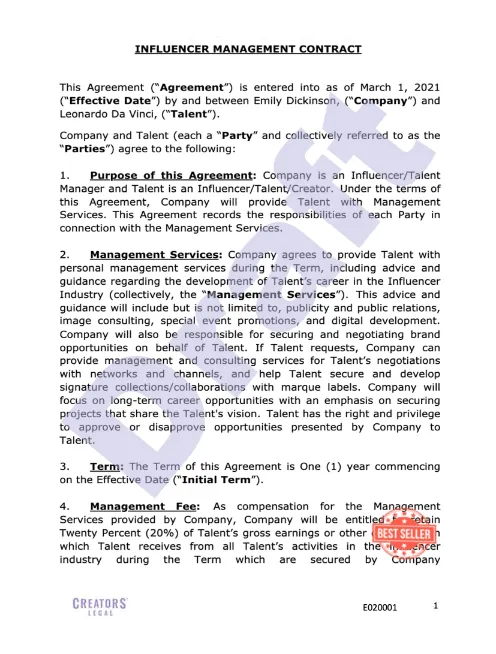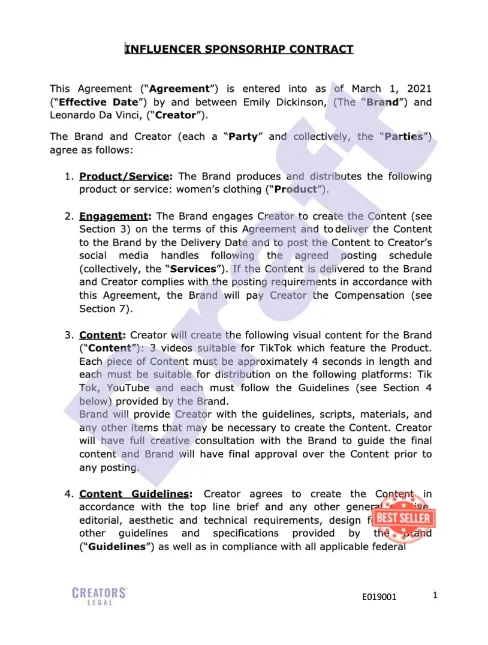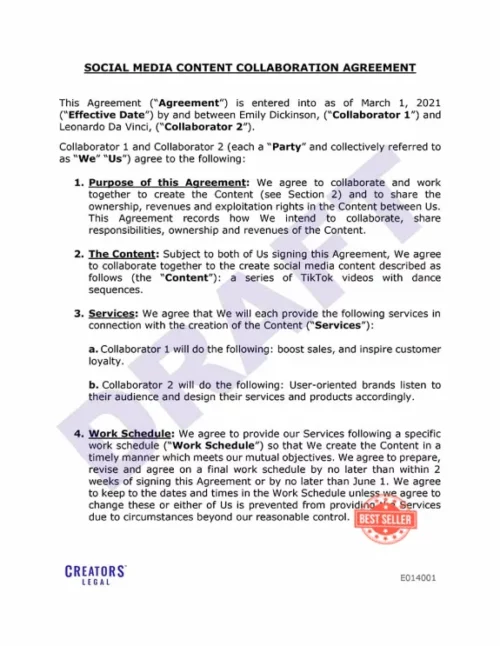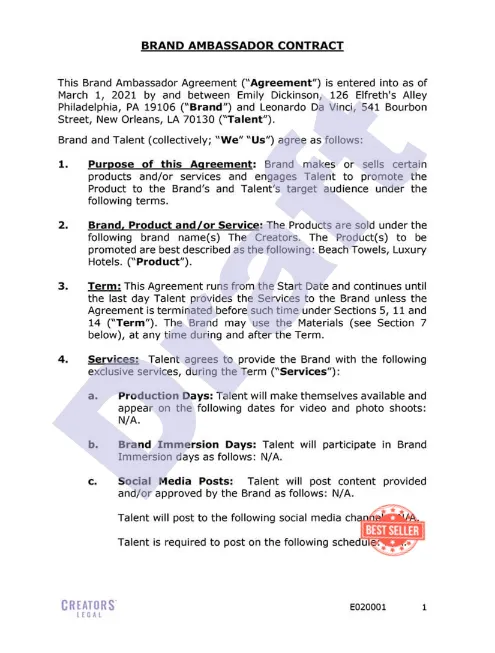How to Decipher Work-for-Hire Agreements? Take a look: When diving into a contract with a brand for user-generated content, it’s critical for content creators to fully understand work-for-hire agreements. Thereby, these contracts can dictate who holds the rights to your creative output and the way to use it. So, by recognizing the intricacies of these agreements, you can protect your rights. Besides, you have the chance to collaborate with brands.
Work-for-Hire Agreements: The Essentials
The Legal Structure of Work-for-Hire Agreements
Work-for-hire agreements legally state that the employer or commissioner owns the copyrights. Also, delivers to the commissioned work from the moment of its creation. In the realm of user-generated content, brands often seek to acquire full rights to the materials.
Such contracts usually include terms that define the scope of work, ownership rights, and the duration of the agreement. Careful examination of these elements is vital, as they set your creative limits and the extent of your rights after submission.
Recognizing Content Creator Rights

Ownership and Copyright
Work-for-hire agreements typically means that all copyright ownership goes from the creator to the employer. As a result, this shift can greatly affect your ability to reuse or monetize your content later.
Rights to Attribution and Moral Rights
It’s important to understand how a work-for-hire agreements could influence your moral rights. By the way, encompass the acknowledgement as the author. These rights can differ by jurisdiction and transfer within work-for-hire contracts.
Avoiding Common Missteps in Work-for-Hire Agreements
Critical Elements in a Work-For-Hire Agreements Contract
An ill-defined scope can lead to disputes and content misuse. It’s indispensable to ensure the details of the deliverables to avoid any confusion about what you’re providing and the permitted uses by the brand.
Unclear Terms of Ownership
Vague ownership terms can result in uncertainty regarding who has the rights to derivative works or other uses of the content. Striving for specificity in the contract can prevent potential legal issues.
Tactics for Securing Better Contract Terms
Specifying Deliverables
- Detail the content’s format, length, and other relevant specifications.
- Set clear deadlines and expectations for revisions.
Restricting Ownership Transfer
- Try to negotiate terms that confine the transfer of ownership to specific platforms or time frames.
- Contemplate a licensing agreement. In the same way, offering more flexibility.
Insisting on Adequate Compensation
Your compensation should mirror the value of your work and the rights you are handing over. Research standard rates in the industry and negotiate a fair price for your work.
The Importance of Contracts for Freelancer Rights

The Necessity of a Comprehensive Contract
A clear and complete contract is your primary defense in protecting your interests. It should spell out the terms of the work-for-hire agreements and the parties’ expectations. That’s to say, it is a legal instrument that ensures you are treated justly. Also, by looking for fair compensation.
Tips for Deciphering Contractual Language
- Be cautious of terms like “in perpetuity” or “exclusive,” as they can severely limit your control over the content.
- Avoid clauses that let the brand modify your work without your approval.
- Get familiar with contractual terms
- Once in a while, seek explanations in case you need it.
Bullet Points:
- Work-for-hire agreements assign copyright ownership to the employer upon creation.
- Clearly define the scope and ownership terms to maintain control over your content.
- Moral rights and the right to be credited should be considered and potentially negotiated.
- Compensation should reflect the value and rights relinquished.
- A detailed contract is a freelancer’s protection for their rights and compensation.
- Comprehending contract language is crucial for identifying and negotiating favorable terms.
Alternatives to Work-for-Hire Agreements
Licensing Agreements
Licensing offers a way for content creators to keep ownership of their work. Particularly, while granting a brand the right to use it. For this purpose, this can be tailored to include terms such as:
- The license duration
- The mediums for content use
- The geographic regions it covers.
Collaboration Agreements
A collaboration agreement can be designed to benefit all involved parties, detailing shared rights, responsibilities, and profits. It ensures that your creative contributions are recognized and compensated.
Examples of Creators Who Successfully Negotiated Work-For-Hire Agreements Terms
Certain content creators have effectively negotiated WFH terms that respect their rights and the hiring party’s interests. These cases often involve clear communication about the creator’s requirements and strategic use of licensing to maintain some control over their work.
Warning Signs in Work-For-Hire Agreements
Watch out for contracts that fail to specify content usage or grant the employer overly broad rights. On top of that, such terms signs that the use of your is in improper ways, without further compensation.
Conclusion

To conclude, understanding work-for-hire agreements is essential for content creators to protect their rights and future use of their creations. That’s to say, by identifying critical elements and common pitfalls of these agreements, creators can negotiate fair terms. Obviously, always review contracts critically, and seek legal guidance to ensure your work and rights are respected. Your creative output is an asset that warrants recognition and appropriate reward.










